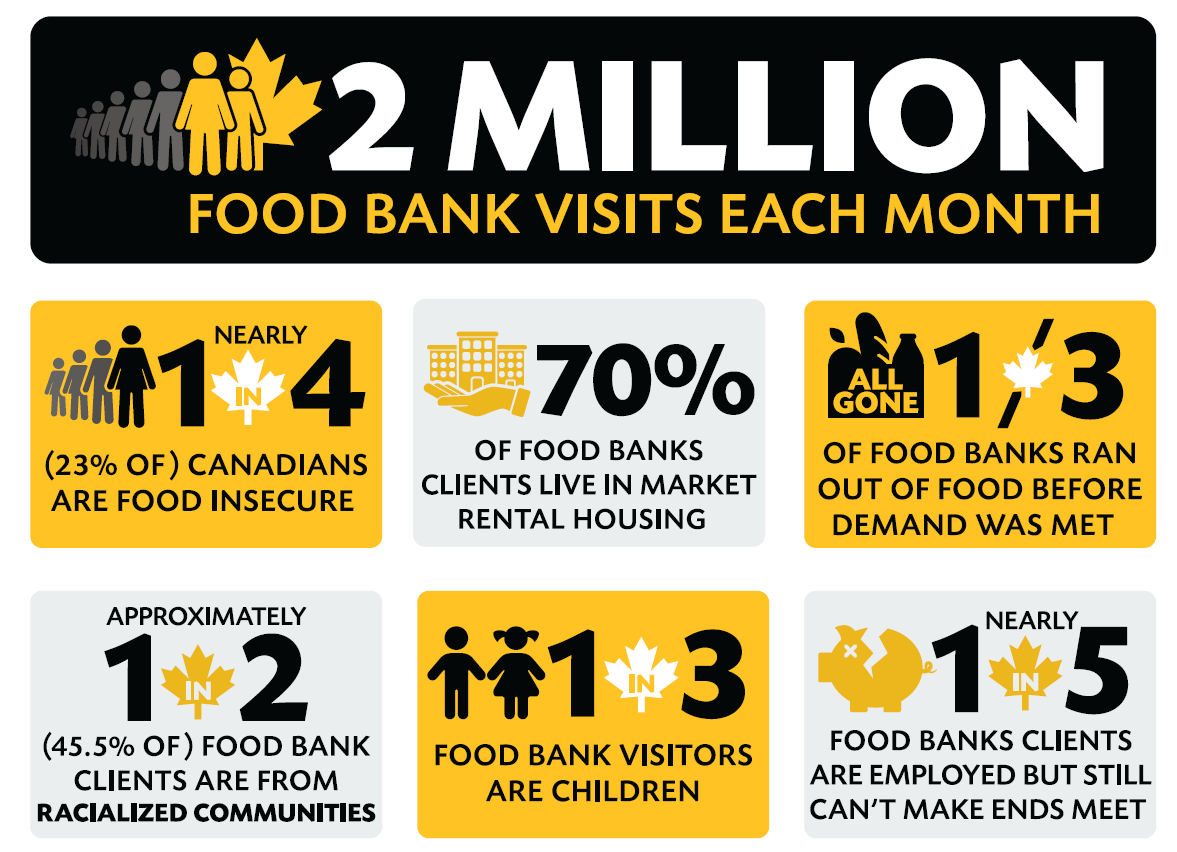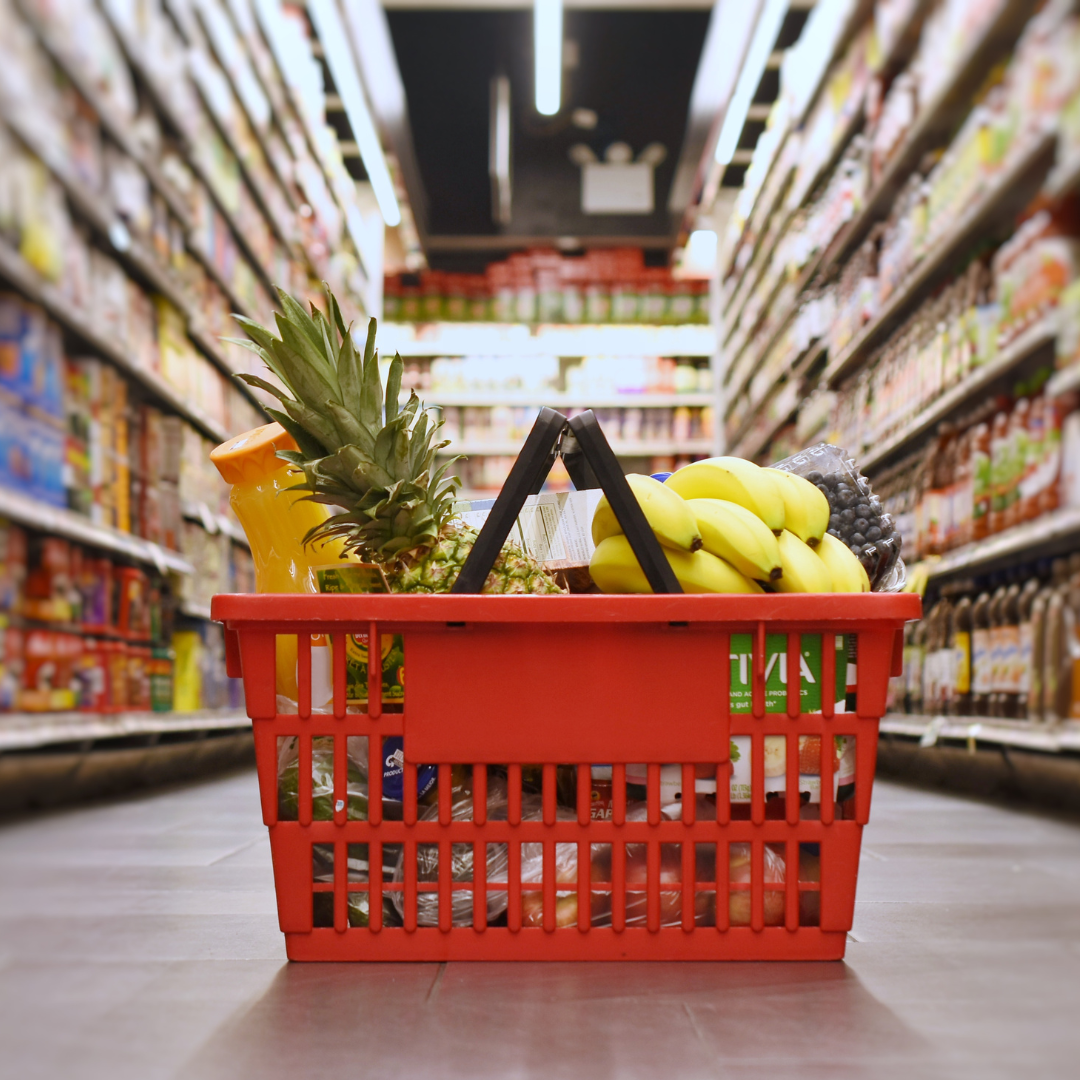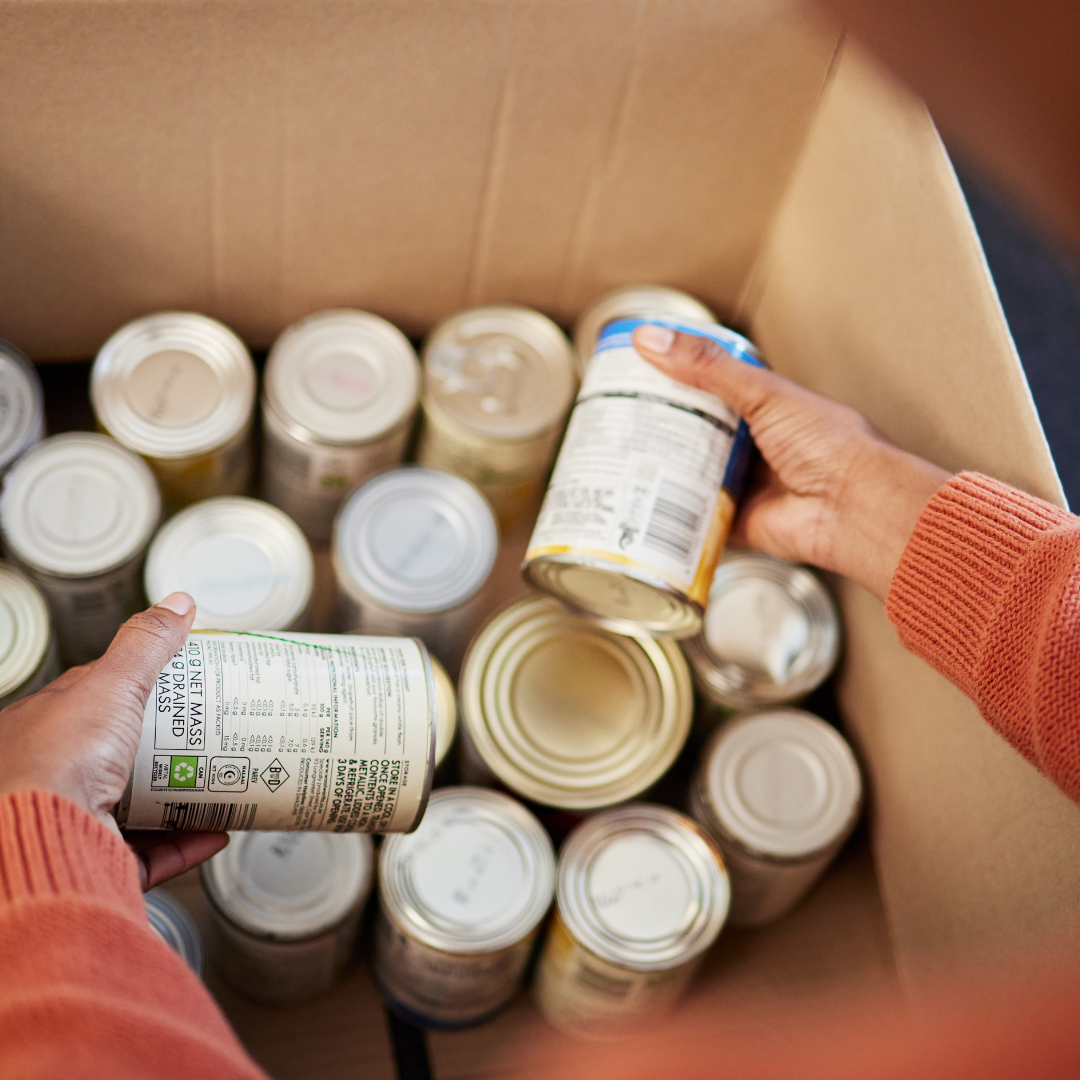Cut Canadian food insecurity by half in 2030
Hunger is Our Priority
Almost one quarter (23%) of people in this country are living with food insecurity.
In 2024, food banks reached a somber new milestone with more than 2 million monthly visits, nearly double the rate seen only five short years ago. Over the course of those five years, people in Canada have watched their rent and mortgage costs increase, the cost-of-living skyrocket, all while wages haven’t kept pace.
The urgency of the situation cannot be overstated. People are skipping meals, taking on unsustainable debt, and stepping further away from a life of dignity.
This election is not just about politics; it is about the kind of country we want to be. It is about ensuring that every person in Canada has the opportunity to live with dignity.
New Food Banks Canada Election Report Finds 86% of People in Canada Support the Goal of Cutting Food Insecurity in Canada in half by 2030
Who is hungry in Canada?

VOTE
Getting Informed
- Read party platform promises with FBC’s platform monitor
- Take direct action with the election’s toolkit.
- Learn more about hunger in Canada and our recommended policy solutions.
Election Day Information
- The election date: April 28, 2025
LEARN
What is food insecurity?
Someone is food insecure when they cannot access or afford to buy enough of the quality food they need. Food insecurity not just about skipping meals—it affects health, well-being, and daily life.
Many families stretch their budget by cutting back on food when money is tight. But this comes at a cost. Research shows that food insecurity is linked to:
- Higher risks of illnesses like diabetes and heart disease
- Increased stress, anxiety, and depression
- More difficulty finding and keeping a good job
Food insecurity isn’t just about individual choices—it’s a bigger issue connected to wages, housing, and social supports. Solving it means making sure everyone can afford enough food to live a healthy life.
There are different levels of severity when it comes to food insecurity.
- A person may be marginally food insecure if they are worrying about running out of food each week.
- A person may be moderately food insecure if they cannot afford many options at the store and must compromise on quality.
- And a person may be experiencing more severe food insecurity if they are regularly skipping meals.
Our recommendations for change

All political parties to commit to reduce food insecurity in Canada by 50% by 2030.
Learn more

Rebuild Canada’s Social Safety Net
Learn more

Solve the Affordable Housing Crisis
Learn more

Help for Low Income Workers
Learn more

Address the Unique Challenges of Food Insecurity and Poverty in the North
Learn more




